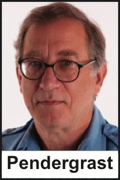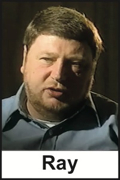Rascals case in brief
In the beginning, in 1989, more than 90 children at the Little Rascals Day Care Center in Edenton, North Carolina, accused a total of 20 adults with 429 instances of sexual abuse over a three-year period. It may have all begun with one parent’s complaint about punishment given her child.
Among the alleged perpetrators: the sheriff and mayor. But prosecutors would charge only Robin Byrum, Darlene Harris, Elizabeth “Betsy” Kelly, Robert “Bob” Kelly, Willard Scott Privott, Shelley Stone and Dawn Wilson – the Edenton 7.
Along with sodomy and beatings, allegations included a baby killed with a handgun, a child being hung upside down from a tree and being set on fire and countless other fantastic incidents involving spaceships, hot air balloons, pirate ships and trained sharks.
By the time prosecutors dropped the last charges in 1997, Little Rascals had become North Carolina’s longest and most costly criminal trial. Prosecutors kept defendants jailed in hopes at least one would turn against their supposed co-conspirators. Remarkably, none did. Another shameful record: Five defendants had to wait longer to face their accusers in court than anyone else in North Carolina history.
Between 1991 and 1997, Ofra Bikel produced three extraordinary episodes on the Little Rascals case for the PBS series “Frontline.” Although “Innocence Lost” did not deter prosecutors, it exposed their tactics and fostered nationwide skepticism and dismay.
With each passing year, the absurdity of the Little Rascals charges has become more obvious. But no admission of error has ever come from prosecutors, police, interviewers or parents. This site is devoted to the issues raised by this case.
On Facebook
Click for earlier Facebook posts archived on this site
Click to go to
Today’s random selection from the Little Rascals Day Care archives….
Click for earlier Facebook posts archived on this site
Click to go to
Today’s random selection from the Little Rascals Day Care archives….
Journalists, too, suffer ‘incurable blind spots’
Jan. 4, 2012
 “A few years back, I met a fellow investigative journalist in North Carolina….The subject came around to the Little Rascals case. He assured me the day care workers were guilty….
“A few years back, I met a fellow investigative journalist in North Carolina….The subject came around to the Little Rascals case. He assured me the day care workers were guilty….
“I told him about how the McMartin case in California had been the first nationally publicized case to use interviews that practically bullied children into reporting mythical, often totally implausible abuse. Little Rascals was a textbook case of the same kind of tactics, and Ofra Bikel’s three fine documentaries left no doubt about this terrible miscarriage of justice.
“Yet my friend refused to listen to any other evidence or point of view. It transpired that his wife had recovered ‘memories’ of sexual abuse – another subject on which he would hear no other evidence….
“I tell you this just to let you know I am familiar with cases in which otherwise objective journalists develop seemingly incurable blind spots.”
– From a 1997 letter to Columbia Journalism Review by Mark Pendergrast, author of “Victims of Memory,” challenging criticism of the False Memory Syndrome Foundation
‘Motive behind these sexual acts is never revealed….’

txstate.academia.edu
Joseph Laycock
Jan. 12, 2016
“There are strong similarities between the confessions taken from accused witches in early modern Europe, the testimony of Satanic ritual abuse taken by modern therapists, and accounts of alien abduction given under hypnosis.
“In each of these narratives, a subject describes horrible sexual transgressions performed on them at the hand of a mysterious other: the thorny penis of the Devil, the bizarre anal insertions of Satanists, and the mysterious probing of aliens.
“The motive behind these sexual acts is never revealed and the existence of the perpetrators is usually in doubt….”
– From “Carnal Knowledge: The Epistemology of Sexual Trauma in Witches’ Sabbaths, Satanic Ritual Abuse, and Alien Abduction Narratives” (abstract) by Joseph Laycock in Preternature: Critical and Historical Studies on the Preternatural (2012)
Did prosecutors and therapists even attempt to ascribe any cause or context to the “bizarre anal insertions” common to the day-care allegations? Candles, Magic Markers, burning flower stems?
Did they think such shocking behavior had appeared full blown out of nowhere? On the list of known sexual perversions exactly which box – or boxes! – would they check?
![]()
The toxic legacy of phony scholarship
July 17, 2013
“Some reports of day care abuse suggest threats and verbal coercion to be particularly severe. (David) Finkelhor et al. (1988), for example, reported that in day care abuse, perpetrators threatened harm to the child in 41% of cases, harm to the child’s family in 22% of cases and threatened to kill a child’s pet in 12%. (Susan J.) Kelley, Brant and Waterman (1993) added that threats in these cases were most likely to involve harm to the victim or their family. (Kathleen Coulborn) Faller (1990) notes that in addition to death threats against the victim or their family, a further frequent threat was to implicate the victim.”
– From “Women Who Sexually Abuse Children” by Hannah Ford (2006)
So much so wrong in so few words!
Finkelhor, Kelley and Faller – among their era’s most prolific researchers in child sexual abuse – have never retracted their false claims. And despite epochal advances in social science, author Ford in 2006 cites their work without qualification, thus extending its influence to another generation.
Notable also: As does fellow fantasist Susan J. Kelley, Finkelhor uses statistics to lend authority to his alternate universe. How many “perpetrators… threatened to kill a child’s pet”? Not 10 percent, not 11 percent, but “12 percent” – who could doubt such exactitude?
That was Dennis T. Ray’s story, and he was sticking to it
 Aug. 14, 2013
Aug. 14, 2013
“FARMVILLE – A juror in the trial of Robert F. Kelly Jr. testified Wednesday that it was an ‘amazing coincidence’ that information from a magazine article appeared in his notes about jury deliberations.
“Dennis T. Ray insisted during a hearing on Kelly’s bid for a new trial that he did not use information from a Redbook article about child molestation to evaluate Kelly’s guilt. Ray denied that he compared Kelly to characteristics of a molester listed in the article.
“But defense attorney David Rudolf vigorously attacked Ray’s credibility by referring to notes Ray made during the deliberations. Rudolf cited numerous phrases from the magazine article, such as ‘vast amount of child pornography’ and ‘sex fiend’ which were identical to phrases in Ray’s notes.
“Rudolf, his voice rising, asked Ray whether it was just coincidence that so many phrases from the magazine appeared word-for-word in his notes. Ray replied that ‘it must be’ because jurors did not have the article in the jury room. ‘The only explanation you have for this is that it is an amazing coincidence?’ Rudolf asked. ‘Yes, sir,’ Ray said.
“In another sharp exchange, Rudolf questioned Ray’s contention that he did not describe the article in an interview with a producer for (“Innocence Lost”). Ray said he told her (only) that there were books in the jury room. Rudolf: ‘You are under oath, sir.’ Ray: ‘I do not remember saying that to her. No, sir.’ Rudolf: ‘Did you say it or not? You are under oath.’ Ray: ‘I do not believe that I did.’
“Rudolf then played video tapes of the program that showed Ray describing the article. Ray said after viewing the video that he did not remember it.”
– From “Kelly lawyer attacks juror’s credibility” in the News & Observer (Jan. 20, 1994)
Dennis T. Ray seems to have been quite a loose cannon in the jury room. In addition to the “amazing coincidence” of the Redbook article, Ray also (according to other jurors cited in Bob Kelly’s appellate brief) “made visits to Edenton despite instructions by the trial court not to.
Mr. Ray also claimed to have talked with an inmate at Eastern Correctional Institution. According to Mr. Ray, the inmate, a convicted child molester, claimed to know Bob Kelly, and to have personal knowledge of Mr. Kelly’s guilt. The jurors said that Mr. Ray also displayed some sort of object that he claimed to be a ‘magic key’ referred to by several children.”
Unpersuaded that any of this mischief might have contaminated the jury’s decision-making, Judge Marsh McLelland rejected Bob Kelly’s motion for a new trial.











0 CommentsComment on Facebook